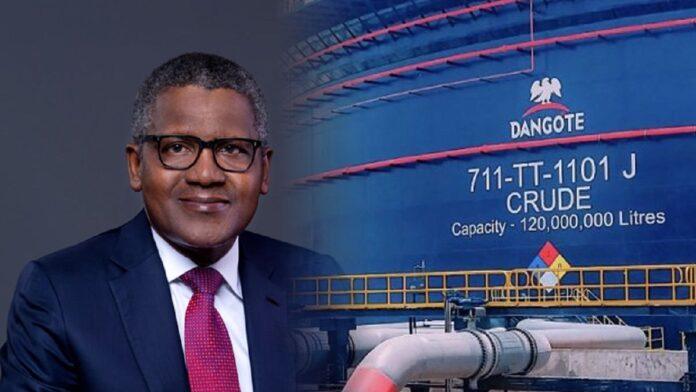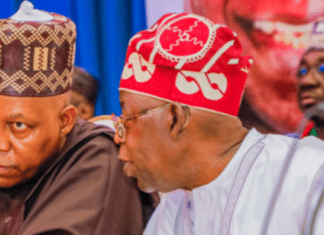Aliko Dangote, president and chief executive of Dangote Industries low, stated that the continent imports more than 120 million tonnes of refined petroleum products a year at a cost of over $90 billion because of Africa’s low local refining capability.
The Nigerian Midstream and Downstream Petroleum Regulatory Authority (NMDPRA) and S&P Global Commodity Insights were the organizers of the recent West African Refined Fuel Conference, which he attended in Abuja.
Africa is quickly becoming a destination for inexpensive, frequently harmful petroleum products, he said, many of which are combined to subpar levels that would not be allowed in North America or Europe.
Thanking the Nigerian National Petroleum Company Limited (NNPC) management for allowing us to purchase some Nigerian crude cargoes from the beginning of production to the present, he disclosed that the company imports 9–10 million barrels of crude per month from the United States and other nations.
We purchase 9 to 10 million barrels of crude oil per month from the United States and other nations, he stated. I have to appreciate NNPC for providing us with certain cargoes of Nigerian crude from the beginning of production to the present.
Even while Africa produces around 7 million barrels of crude oil a day, he said, only about 40% of the continent’s 4.3 million barrels of processed goods are refined domestically. Europe and Asia, in comparison, refine more than 95 percent of their use.
Read Also: Outstanding Young Writers Rewarded by Keystone Bank in Poetry Contest
We therefore import more than 120 million tonnes of refined petroleum products annually, thereby exporting jobs and bringing poverty to our continent, even if we produce a plenty of crude. With excess refining capacity, those regions are capturing a $90 billion market opportunity. To give you an idea, only 15% of African nations have a GDP of more than $90 billion. He claimed, “Year after year, we are essentially giving away the economic potential of an entire continent to others.”
Dangote reiterated his support for free markets and global collaboration, stating that trade must be based on comparative advantage and economic efficiency rather than sacrificing standards of quality or safety.
He emphasized that “Africa exporting raw crude and then reimporting refined products—products we are more than capable of producing ourselves, closer to both source and consumption—defies logic and economic sense.”
The technological, commercial, and contextual obstacles that are specific to the African environment were among the many difficulties he emphasized.
According to him, constructing refineries like the Dangote Petroleum Refinery is one of the most logistically challenging and expensive industrial projects ever undertaken.
According to him, the Dangote refinery project needed to clear 2,735 hectares of land, 70% of which was swampy. This included pumping 65 million cubic meters of sand to stabilize the site and raise it by 1.5 meters, installing more than 250,000 foundation piles, and installing millions of meters of electrical, plumbing, and cabling.
At its height, we had approximately 67,000 individuals on the site, 50,000 of whom were Nigerians, working around the clock to coordinate across hundreds of different nationalities and disciplines. Then, of course, the COVID-19 pandemic struck, causing us to regress by two years and adding new levels of risk, complexity, and disruption. We persisted, though,” he said.
Additionally, because Nigerian ports were unable to accommodate the size and number of equipment needed for the refinery, a special harbor had to be built.
330 cranes, more than 2,500 pieces of heavy machinery, and even the construction of the biggest granite quarry in the world—which can produce 10 million tonnes annually—were all part of this.
He stated, “To put it briefly, we created an entire industrial ecosystem from the ground up, not just a refinery.”
The refinery’s technical achievement notwithstanding, Dangote recognized major business obstacles, especially those related to the sourcing of crude oil and exchange rates, which increased from N156/$ at the beginning to N1,600/$ at the end. Nigeria reportedly produces around 2 million barrels a day, but the refinery has had trouble obtaining oil on favorable terms.
“We had to bargain with foreign trading companies that were purchasing Nigerian crude and reselling it to us—with significant premiums, of course—instead of purchasing crude oil directly from Nigerian producers at competitive terms.”
Bottlenecks in regulations and logistics have also had an impact. It is stated that port and regulatory fees make up 40% of the entire cost of freight and can occasionally be two-thirds the price of vessel chartering.
Because they are not subject to astronomical port fees, refiners in India, who buy crude oil from even more distant places, benefit from cheaper freight expenses than those of West Africa, Dangote stated.
Customers pay at the time of loading and at the point of discharge, making it more costly to load a domestic cargo of petroleum products from the Dangote Refinery at the moment, he noted. Conversely, they only pay at the point of discharge when they load from Lomé, a rival.
Join Television Nigerian Whatsapp Now
Join Television Nigerian Facebook Now
Join Television Nigerian Twitter Now
Join Television Nigerian YouTUbe Now






















